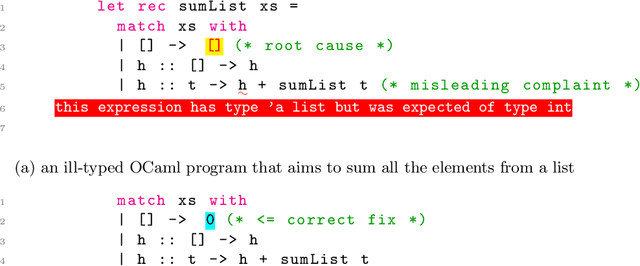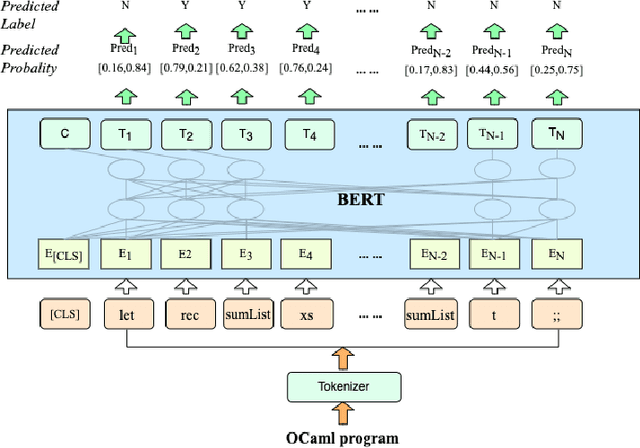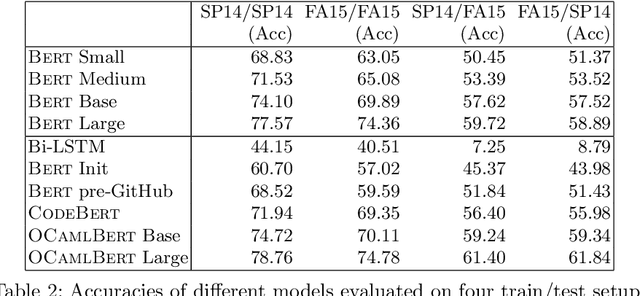Novice Type Error Diagnosis with Natural Language Models
Paper and Code
Oct 07, 2022



Strong static type systems help programmers eliminate many errors without much burden of supplying type annotations. However, this flexibility makes it highly non-trivial to diagnose ill-typed programs, especially for novice programmers. Compared to classic constraint solving and optimization-based approaches, the data-driven approach has shown great promise in identifying the root causes of type errors with higher accuracy. Instead of relying on hand-engineered features, this work explores natural language models for type error localization, which can be trained in an end-to-end fashion without requiring any features. We demonstrate that, for novice type error diagnosis, the language model-based approach significantly outperforms the previous state-of-the-art data-driven approach. Specifically, our model could predict type errors correctly 62% of the time, outperforming the state-of-the-art Nate's data-driven model by 11%, in a more rigorous accuracy metric. Furthermore, we also apply structural probes to explain the performance difference between different language models.
 Add to Chrome
Add to Chrome Add to Firefox
Add to Firefox Add to Edge
Add to Edge